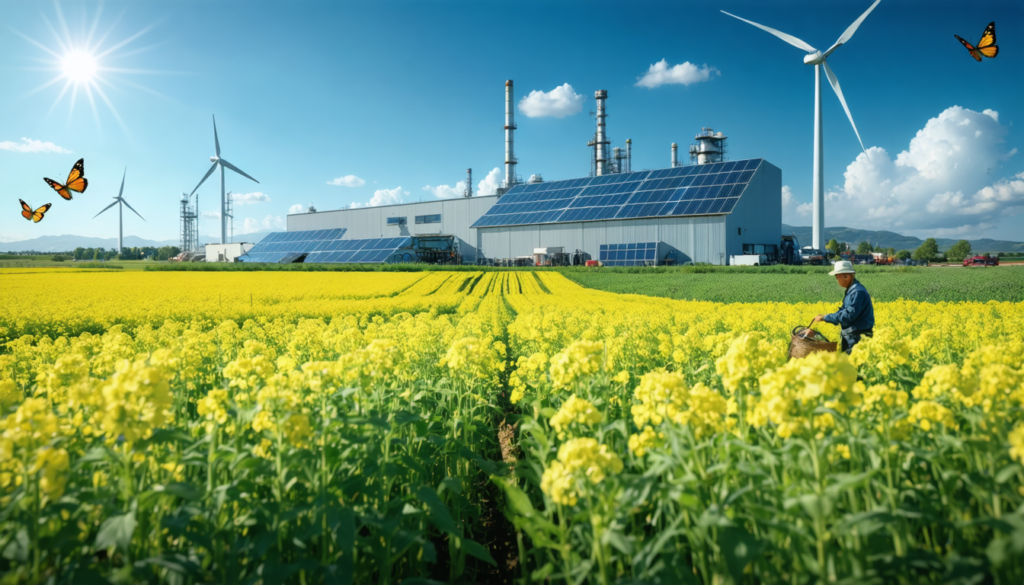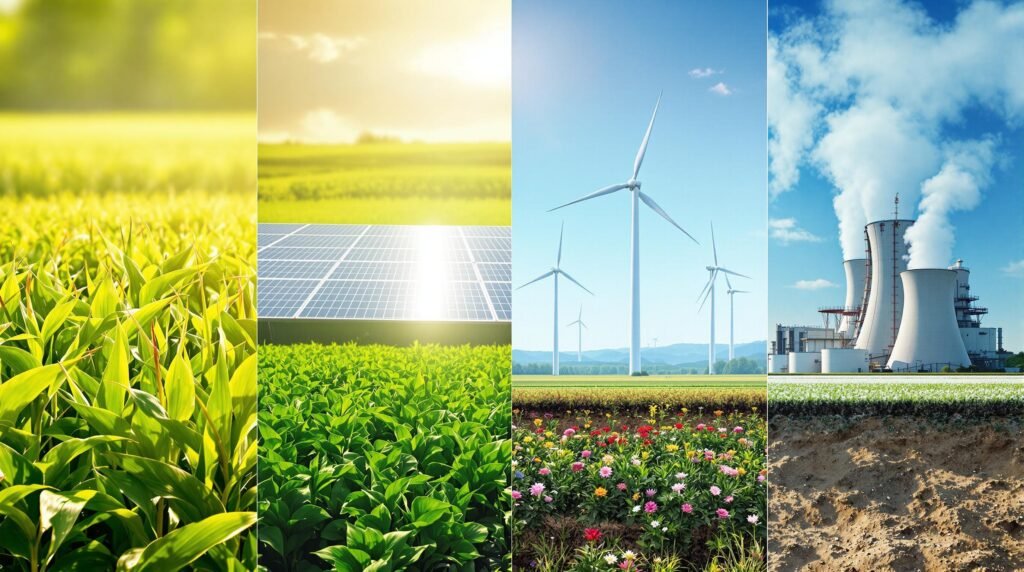As the world grapples with the dire effects of climate change and the ever-growing demand for energy, the search for sustainable and viable solutions has become increasingly urgent. The ongoing reliance on fossil fuels is not just damaging to the environment but also unsustainable in the long run.
This exposé dives deep into biofuels as a potential answer to the energy crisis, spotlighting their production processes, current issues, and future potential alongside the challenges of transitioning away from traditional forms of energy. With a multifaceted approach that combines technology and nature, biofuels could reshape the energy landscape substantially.
Understanding Biofuels and Their Importance
Biofuels are derived from biological materials, which distinguishes them from traditional fossil fuels. In an attempt to offset the damaging effects of gasoline and diesel, biofuels are produced primarily from plants, agricultural residues, and organic waste. There is a rising interest in these renewable energy sources as they promise a reduced carbon footprint compared to conventional fuels.
What Are Biofuels? A Deeper Insight
Defined broadly, biofuels are any fuels, solid or liquid, derived from biomass. This can include:
- First-generation biofuels, sourced directly from food crops like corn, sugarcane, and soybean.
- Second-generation biofuels produced from non-food crops and agricultural waste, deploying more advanced and sustainable practices.
- Third-generation biofuels that utilize algae or other microbial sources, significantly pushing the boundaries of energy production.
These variations offer different sustainability levels and environmental impacts, which is crucial as the debate intensifies over their usage concerning food security and land development.
The Production Process of Biofuels
The biofuel production process can involve several methods including fermentation, transesterification, and other biochemical processes. The following are some fundamental steps:
- Feedstock Selection: Identifying the most suitable biomass for efficiency.
- Pre-treatment: Processing the biomass to make it easier to convert into fuel.
- Conversion: Utilizing various methods like fermentation to create biofuels from the feedstock.
Beyond these steps, ongoing research in the field, such as utilizing advanced biofuels technologies, is becoming increasingly important as we adapt to changing energy demands.
The Types of Biofuels and Their Applications
The deployment of biofuels is varied, with applications ranging from transportation to energy production. Some commonly known forms include:
- Biodiesel: Derived from vegetable oils or animal fats, it serves as a green alternative to petroleum diesel.
- Bioethanol: Often produced from corn or sugarcane, bioethanol is blended with gasoline to enhance octane ratings.
- Renewable Diesel: A similar yet distinct product from biodiesel, renewable diesel can replace petroleum diesel on a one-to-one ratio.
Adapting these fuel types requires adjusting infrastructure and creating appropriate regulations to facilitate seamless transitions.
The Benefits and Challenges of Biofuels
Biofuels present numerous advantages over conventional fossil fuels. However, they also come with challenges that must be navigated to realize their full potential in addressing the energy crisis.
Environmental Benefits of Biofuels
The burning of fossil fuels contributes extensively to global warming and pollution through greenhouse gas emissions. On the other hand, biofuels can significantly lower the carbon footprint:
- The carbon released when biofuels are burned is effectively offset by the carbon absorbed by the plants during their growth.
- Biofuels often produce fewer air pollutants when combusted compared to traditional fossil fuels.
This shift towards more environmentally friendly fuels can lead to cleaner air quality and a healthier ecosystem.
Economic Implications of Biofuel Production
While the potential benefits of biofuel production are evident, the reality can be more complex. Economically, the growth and development of biofuels can:
- Create new job opportunities within the bioenergy sector.
- Reduce dependence on imported fossil fuels.
- Boost agricultural sectors by creating new markets for farmers.
Despite these advantages, the cost of transitioning to biofuels can be substantial. Moreover, the potential for land change for agricultural purposes to produce biofuels could trigger competition with food crops.
Policy Considerations for Biofuel Adoption
Effective policy frameworks are essential to facilitate the growth and integration of biofuels into mainstream energy. Regulatory frameworks such as the Renewable Fuel Standard in the United States drive biofuel production by mandating specific usage percentages within the fuel market. A robust policy environment must address key concerns including:
- Encouragement of research in developing advanced biofuels.
- Ensuring sustainable agricultural practices to mitigate food vs. fuel debates.
- Monitoring emissions and overall environmental impacts.
Through proper regulation and policy support, the adoption of biofuels can be optimized for maximum benefits.
The Future of Biofuels: Innovations and Prospects
The landscape of energy production is continuously evolving. Innovations in biofuels promise exciting possibilities for sustainability and carbon reduction. Some notable advancements in the field include:
Next-Generation Biofuels
As technologies advance, the emergence of next-generation biofuels, particularly those derived from algae, has caught the attention of many researchers. Algae can produce high yields of oil, which can be converted into biodiesel, making it an attractive candidate for sustainable energy:
- High productivity with a lower land footprint compared to traditional crops.
- Capable of utilizing wastewater, offering a dual benefit of biofuel production and waste management.
This innovation not only showcases the potential of biofuels but also the possibility of cleaner, more efficient methods of energy generation.
Collaboration Between Energy and Technology Sectors
The future of biofuel production is inherently tied to technology. Collaborations between energy companies and tech innovators will be critical to improving biofuel generation processes, ensuring that production methods are efficient and scalable. Research into:
- Microalgae as a sustainable feedstock for biofuel production.
- Carbon capture utilization technologies to decrease emissions further.
- Genetic engineering to enhance plant feedstock for higher oil yields.
These advancements hint at substantial progress towards producing biofuels that would have minimal negative socioeconomic impacts.
The Role of Biofuels in Mitigating Climate Change
With growing awareness and understanding of climate change implications, biofuels stand out as a potential game-changer in reducing overall carbon emissions.
- Biofuels can combine with other renewable energy technologies to create a more sustainable energy ecosystem.
- Policy frameworks could integrate effective incentives for biofuel implementation, thus providing further access and affordability to cleaner energy.
Embracing these solutions will undoubtedly contribute significantly to achieving global emissions reduction targets.
Conclusion
The exploration of biofuels reveals a complex but promising opportunity to address our world’s pressing energy needs. While challenges remain in ensuring the sustainability of their production and usage, the evolution of this industry will play a crucial role in our transition to a greener future. With the alignment of technology, policy, and market demand, biofuels have the potential to significantly alter our energy landscape.




